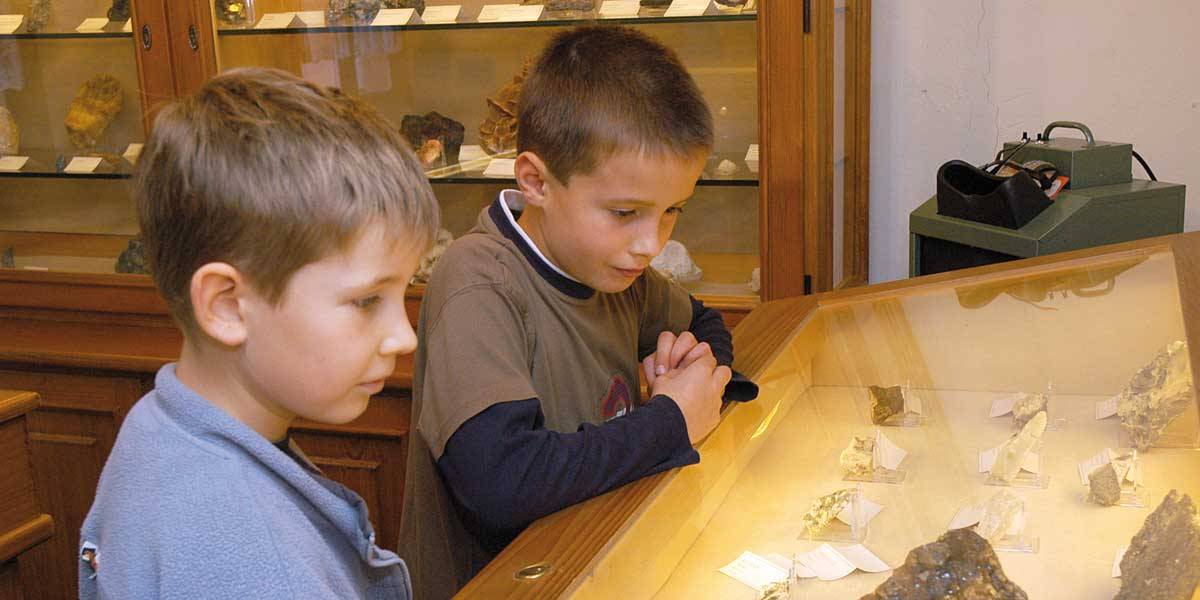Because we can only protect what we know and value
Promoting education for sustainable development is a particular concern of the Geoparks. Education for sustainable development enables people to think and act in a sustainable manner. Development is sustainable when people around the world live with dignity now and in the future and are able to develop their needs and talents.
To achieve this, you need to understand the processes in nature and the landscape, especially in your own living environment. This increases the appreciation for one's own region, which is the basis for holistic and sustainable regional development. Holistic and sustainable regional development was already formulated as the overall goal in our master plan for the Vulkaneifel Nature and Geopark, which was decided on in 2013 and developed with the region. In the same year, the concept of “environmental education from the beginning” was adopted, which aims to strengthen geo- and nature literacy among the population.
Learning from and with the little ones:
Nature and Geopark daycare centers & Nature and Geopark Schools
In the Vulkaneifel, we particularly focus on working with daycare centers and schools in order to reach even the youngest children and get them excited about their homeland:
The Arche Noah daycare center from Strohn and the Spatzennest daycare center from Großlittgen are officially recognized as nature and geopark daycare centers; the school at Pulvermaar in Gillenfeld and the Gerolstein elementary school as a nature and geopark school. There are further cooperation agreements with the primary schools in Üdersdorf and Üxheim, which also want to pursue the path to becoming a nature and geopark school.
These collaborations aim to enable kindergarten children and students to have original experiences of nature, culture and home in their immediate environment according to the criteria of ESD and to impart knowledge about the nature and geopark. Every group of preschool children and the previous year in the daycare centers as well as every class of every grade should address the topic of “Nature and Geopark” and beyond at least once a year, e.g. in project days or excursions. Sequences about the work and significance of the nature and geopark, geological history, typical regional habitats and the plant and animal species found there as well as local cultural aspects of the nature and geopark region are integrated at appropriate points.
Specifically, this means that children should experience nature. We want to give the children contact with the local landscape. They can discover the region in a variety of ways: they learn to distinguish between different animal and plant species, get to know volcanoes and maars and thereby sharpen their awareness of the diversity in nature. Watching birds build nests or squirrels play promotes emotional bonds with their home environment. How do volcanoes form? What does a volcano look like from the inside? Where can I find volcanic stones in my everyday life? Why does the Vulkaneifel look like this today? We want to make the economic aspects of volcanism, the connection between volcanoes, usable rocks, their mining as well as the changes in the landscape and their irreversibility accessible to children. Traditional crafts and land use form the basis for sustainable business. Attentive exploration of the surroundings trains awareness of the diversity, uniqueness and beauty of the landscape.
Because we can only protect what we know and value. Children are the adults and decision-makers of tomorrow.
Junior Ranger Vulkaneifel
Another focus of our educational work is the Vulkaneifel junior rangers: a total of 50 young people aged 9-15 have been trained as junior rangers in two rounds. The young people not only have the opportunity to expand their own knowledge in natural history and nature conservation areas, but they should also be able to pass on this knowledge in an adequate way in order to act as multipliers for their and other generations in their living environment To inspire homeland.
In addition to the technical knowledge of flora and fauna, geology and other natural history content, the training also includes basic knowledge of nature conservation law as well as targeted training in non-verbal communication, language and conflict resolution. In this way, the young people learn to lead and supervise groups themselves. Another module is dealing with people with special needs in an integrative sense.
In this way, the junior rangers are linked to the adult nature and geopark guides and can benefit from their experiences.

